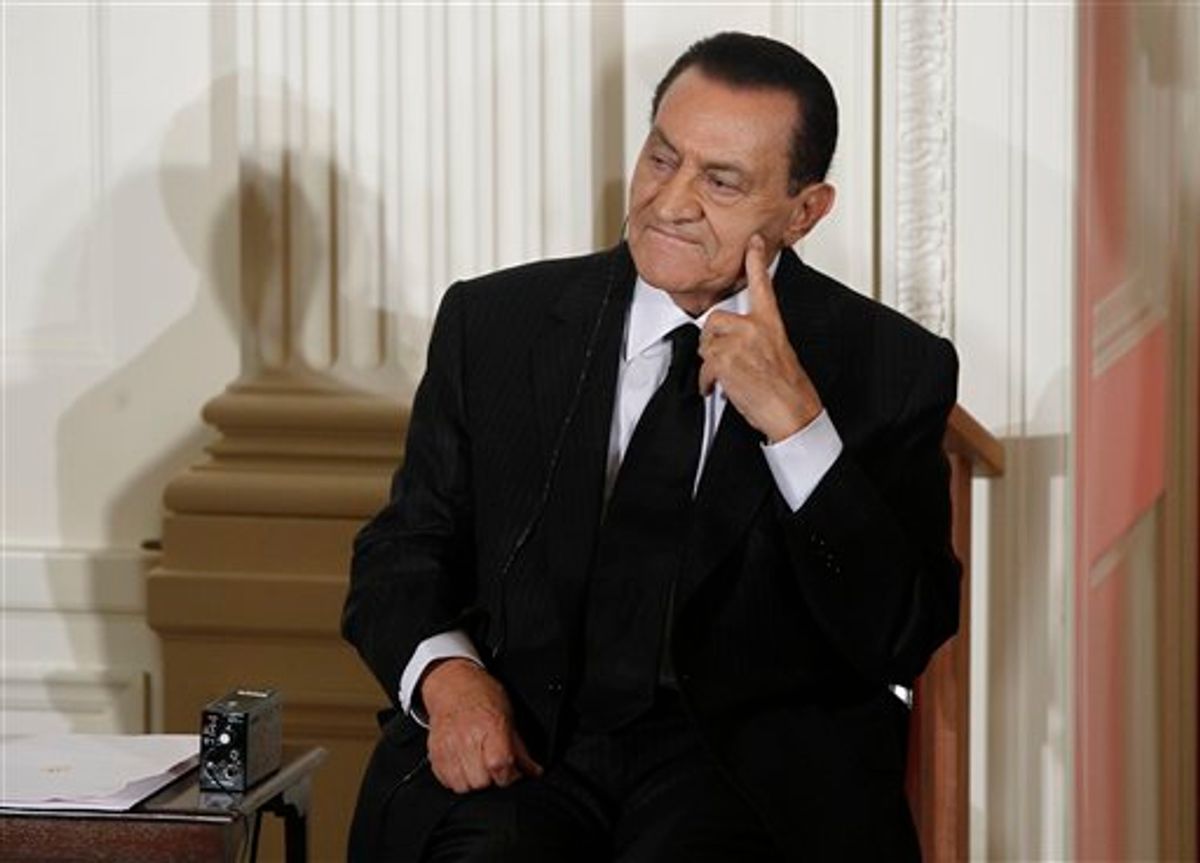 CAIRO, Egypt — Republican challenger Mitt Romney has accused U.S. President Barack Obama of letting Egypt, a once stalwart friend, slip away.
CAIRO, Egypt — Republican challenger Mitt Romney has accused U.S. President Barack Obama of letting Egypt, a once stalwart friend, slip away.
All politics aside, it is true that Egypt is no longer the unflinching ally it once was.
Shaken by a popular uprising that ousted U.S.-friendly dictator Hosni Mubarak and brought Islamists to power, the decades-long partnership between the two countries is significantly different from when U.S. President Barack Obama took office.
This new relationship was on display last month when the government of President Mohamed Morsi was slow to respond to an assault on the U.S. Embassy in Cairo. The ordeal prompted Obama to publicly question America’s alliance with Egypt.
“You know, I don’t think that we would consider them an ally, but we don’t consider them an enemy,” Obama said at the time.
For its part, Egypt’s new leadership has made no secret of its desire to reset relations with the United States.
“It is no longer a relationship between a leader and a follower, but between two sovereign nations that will support each other as long as their principles coincide,” said Gehad Al Haddad, a senior adviser to Egyptian President Mohamed Morsi’s “100 days” project.
“This is the first time Egypt and the U.S. have had this kind of relationship,” Al Haddad added. “But how this relationship will develop remains to be seen.”
U.S. ties to Egypt’s military, while still intact, have also taken a hit. Under the ruling Supreme Council of Armed Forces (SCAF) earlier this year, Egyptian prosecutors accused employees of three prominent American nonprofits of trying to subvert the state.
Romney has tried to capitalize on Washington’s evolving relations with Egypt. He accuses Obama of “leading from behind” in the Middle East and losing crucial leverage over a key country.
Some analysts say Obama’s strategy of allowing democracy to take hold in the Arab world is in America’s long-term interest, even if it brings Islamists to power. But there’s little doubt that this has come at the expense of American power in the region.
Egyptians themselves are using their newfound voices in the post-Mubarak era to re-evaluate what they expect from a partnership with the United States.
Under Mubarak, the authoritarian president’s policy of accepting U.S. largesse — in the form of at least $1.3 billion in military and other aid each year — in exchange for keeping Egypt’s border with Israel relatively quiet was unpopular with ordinary Egyptians who were more sympathetic to Palestinians.
America’s backing of Mubarak, a leader all too eager to stifle political opposition at home, coupled with the widely denounced U.S. invasion of Iraq, stirred resentment toward U.S. policy in Egypt. Any calls for democracy from American officials largely fell flat.
This deeply ingrained skepticism of the United States has continued to color Egyptian sentiment toward the Obama administration during and after the revolution.
Despite Obama’s moves to ease Mubarak from power and his pressure on Egypt’s military to refrain from firing on protesters, Egyptians suspected the president only had U.S. interests in mind.
Protesters first chided Obama for not moving fast enough to call for Mubarak to step down at the height of the uprising. Then activists denounced the administration’s support for the interim military council, which had violently quelled pro-democracy protests and rounded up anti-military activists during the 16-month-long transition.
According to a June poll released by the Pew Research Center, an independent research group, 80 percent of Egyptians said the United States considered Egypt’s interests “not too much” or “not at all.” In the same survey, just 29 percent of Egyptian respondents said they had confidence in Obama’s leadership.
“There has been no change at all” in U.S. policy toward Egypt, said Ahmed Maher, co-founder of the April 6 social labor movement, which launched protests in 2008 that laid the groundwork for the later revolt.
“[The U.S.] merely strives to gain control in any way possible. It gave its full support to Mubarak and switched sides as soon as it seemed like [U.S.] interests were in jeopardy,” he said.
In a bizarre twist, some local liberal activists and politicians, picking up on Republican Congresswoman Michele Bachmann’s claims that Obama maintains a secret pro-Islamist agenda, accused the United States of conspiring to install the Muslim Brotherhood in positions of power.
Popular television personality Tawfik Okasha announced to viewers that the United States had rigged Egypt’s presidential elections to deny victory to the pro-military candidate.
But while top U.S. officials have met with Morsi and other Brotherhood leaders and the Obama administration has thrown its weight behind a $4.8 billion loan for Egypt from the International Monetary Fund, relations between the two sides remain tense.
Morsi has made it clear he will chart a new and independent foreign policy course for Egypt, reaching out to U.S. foes and competitors like Iran and China. Mubarak had previously shied away from such moves for fear of irking his American benefactors.
Al Haddad also said the Brotherhood is seeking to curb relations between private U.S. defense contractors and Egypt’s military, bringing American aid to the powerful Egyptian army under civilian control.
Following the storming of the U.S. Embassy in Cairo in September, Morsi deepened the rift by denouncing the anti-Islam film that sparked the protests and pandering to an increasingly conservative constituency instead of assuring U.S. officials of his government’s commitment to protect American embassy grounds.
“It is up to us to become stronger,” said Ibrahim Al Iraqi, a member of the supreme committee of the Muslim Brotherhood’s Freedom and Justice Party in the Daqhleya province, “so that the U.S. administration respects the feelings of the average Egyptian citizen.”
Heba Habib contributed reporting.



Shares